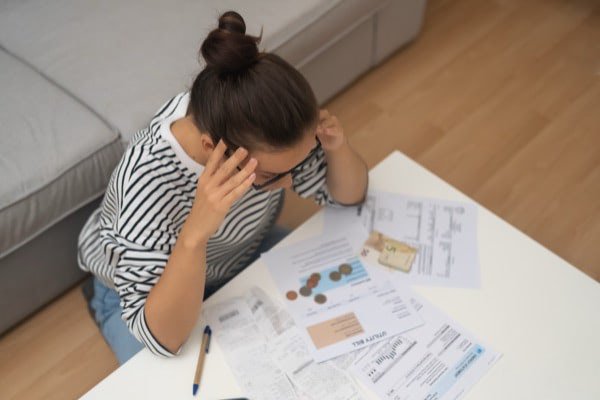Dealing with debt? Here’s where to begin
Are you dealing with debt and struggling to pay it off? This is more common than you might think, as many Canadians have a hard time managing their debts at some point. The good news is there are some steps you can take that will put you on the right track towards being debt-free. No matter what your situation is, these tips can help most people pull themselves into a better financial state and free themselves from their debt loads. Here’s what you should know!
Evaluate the damage
You can’t start dealing with debt until you know what exactly you’re dealing with! While this can be a painful process, we recommend starting by carefully going through your debts. Pay attention to what you owe, the interest rates you have, and your payment due dates. You should also see if any payments are overdue, or if you owe any extra money in late fees. Every debt will be slightly different, and it’s important to understand what you owe to whom. This will be the foundation of your payment plan, and it will help you prioritize your debts. This is arguably the most difficult part of dealing with debt, because it can be hard to face the results of our spending. The good news is you can get this over with right at the start, so you can focus on cleaning up your finances and achieving a debt-free status.
Create a payment plan
Once you know what you owe, when you owe it, and who you owe it to, you can start creating a plan to make your payments. You might think the best thing to do is start with your highest-interest debt, and work your way down. After all, this will help you clear out your high-interest loans fastest, which is the biggest drain on your finances. However, this can be a risky move. The danger with focusing exclusively on one or two debts is you might forget to pay off your other loans. While the interest rates on these may be lower, missed payments will result in late penalties. In the long run, this could cost you more, even though you are trying to be strategic and save.
So, what should you do? Your best option is to make the minimum payments on all of your debts. This way, you can be sure you aren’t falling behind, and you won’t suffer any late fees. If you are able, you can then start putting more money towards those high-interest debts. Just make sure you are giving each debt the payments they require to stay on track!
Consider areas to cut back
Before we get into ways you can start saving, the first thing to do is ensure you don’t add onto your debt load while you are paying your current debts off. More debt means more interest, and more money to pay back. Any major purchase you were planning that requires a loan, or any new credit you were considering, should be put on the back burner. It’s important to give yourself time to catch up with your finances!
With that point out of the way, what can you do to save and reduce your spending? After all, increasing your savings will help you pay off your debts faster. In order to save, you need to identify areas where you can cut back without causing damage. For example, you can’t stop paying rent or your mortgage, or stop buying groceries. However, maybe you can limit your non-essential spending, such as eating out, clothes shopping, or subscription fees. You don’t have to get rid of these things entirely, and it’s not something you have to do forever. However, this will help give you some extra money to put towards your debt payments.
Reach out to a broker
If dealing with debt is extremely overwhelming, and you think you need some extra guidance, you should contact a mortgage broker! Sometimes, a path like debt consolidation is the best route to take for homeowners, and using a broker is the best way to do this properly. Debt consolidation takes all of your debts and combines them into one lump sum, with one interest rate. This makes it a bit easier to keep track of your payments, and those with a good credit score can likely secure a lower interest rate as well. As a homeowner, you can use the equity that you have built up to do a debt consolidation. However, it’s important to discuss this with a broker before taking the plunge! Debt consolidation is a big commitment, and you want to be sure it is the best move for you. If so, we can get you set up for success.
Dealing with debt can be a challenge, and it can definitely feel intimidating. However, these tips will help you get into better financial shape, giving you the confidence you need to take on your debt. Remember, you can always contact a mortgage broker if the process feels too overwhelming! We are here to help you and guide you towards the best solution for your needs.
If you have any questions about your mortgage, get in touch with me!

